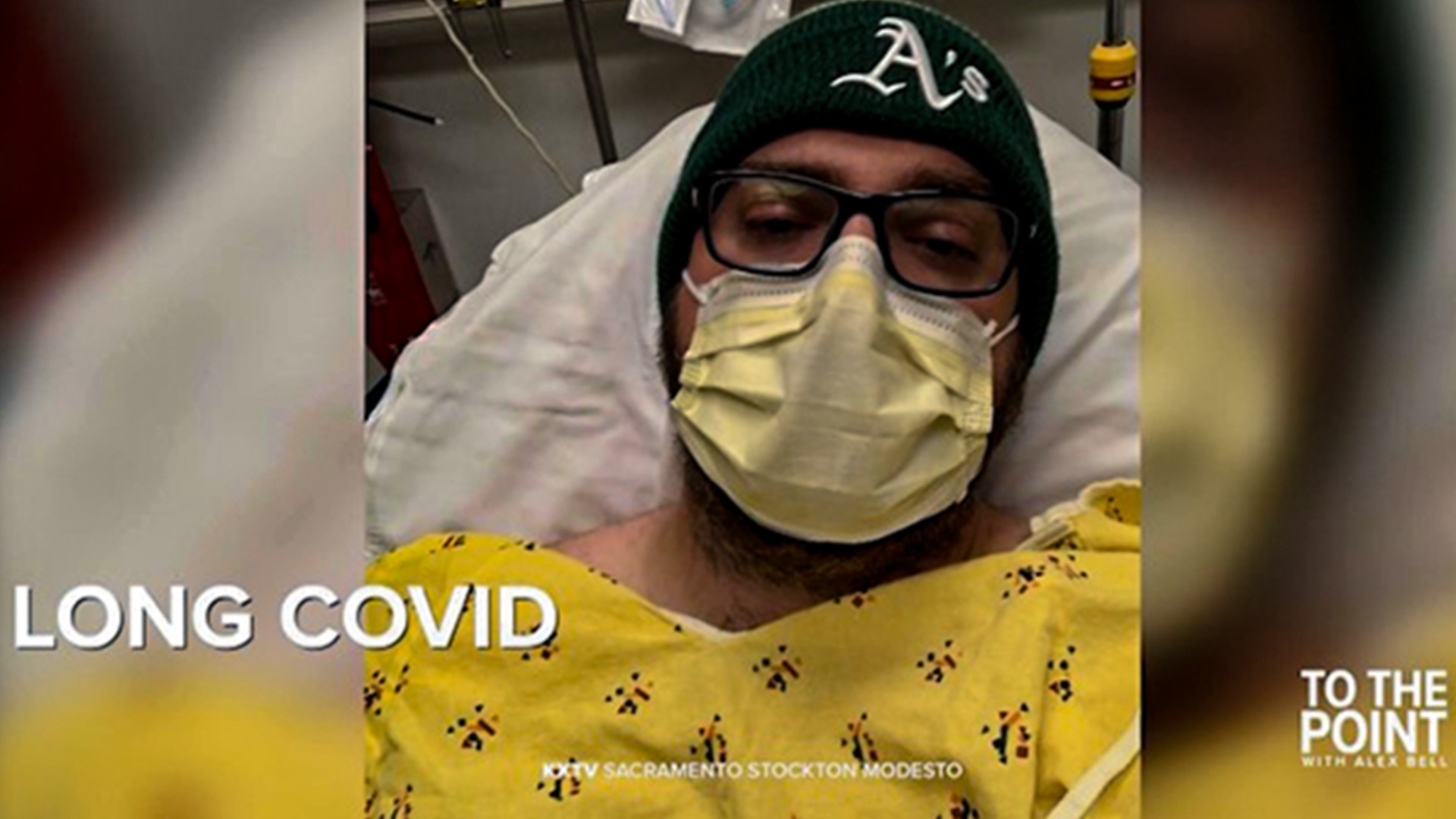RANCHO CORDOVA, Calif. — The worst of COVID-19 seems to be in the rearview mirror, with the state lifting its COVID-19 State of Emergency last week and the federal government set to do the same in May.
For some people, however, the effects of the virus aren’t going away.
42-year-old Justin Wilhite lives with his wife and three sons in Rancho Cordova. He has been suffering from the effects of post acute COVID syndrome – commonly known as “long COVID” – for three years now.
“I'm just a person that got COVID in the first wave, March 2020…I'm just living with the post effects of that,” he said. “March 4, (2020), I wake up, I have a headache. My lungs kind of feel like glass. I feel really short of breath.”
Wilhite has Type 1 Diabetes, one of the health conditions that puts someone at greater risk of getting a serious COVID infection. He thinks he caught the virus at work—and the effects are still lingering.
“Every day I deal with incredible fatigue, shortness of breath -- and that's just getting up, walking to the bathroom,” Wilhite said. “My daily activity -- and it wipes me out and it acts like a workout for me - is going downstairs and back up. If I do that three times, the next day, my legs don't work….and it's been this way, every day, since March 4, 2020.”
ABC10 first spoke with Wilhite three years ago, after he was hospitalized with COVID. Then, we spoke with him four months later.
“I’m kind of sick of being sick at this point, and it’s been a long time since I’ve been healthy,” he said in July of 2020.
ABC10 interviewed him again in March of 2021.
“It’s like being sick every day of your life,” he said then.
The symptoms haven’t gone away. Brain fog and muscle weakness make Wilhite unable to work, he said. He uses a wheelchair due to chronic fatigue.
“For some people, it's as little as just, you know, ‘I have sinus drainage. It's out of control,’” said Dr. Brad Sanville, Pulmonary and Critical Care Physician at UC Davis. “For other people, it’s, ‘I'm profoundly debilitated. Can't do very much. Incredibly short of breath, bad headaches.’”
Dr. Sanville has been working with long COVID patients since UC Davis Health launched its Post-COVID-19 Clinic in the fall of 2020.
“Long COVID is typically defined as symptoms that last beyond eight weeks after the patient has recovered from their infection,” he said.
Wilhite’s case is rare, Dr. Sanville said, but not unprecedented.
“Most people will improve in kind of the months-to-within-a-year. That's probably the vast majority,” Sanville said. “But there's a small handful that continue to have symptoms for quite a long time, even a couple of years out.”
Long COVID patients with shortness of breath or trouble walking don’t always have lung or heart damage, he said. Rather, chronic fatigue syndrome could be to blame.
“The fatigue, I think, is so overpowering for people, it makes them perceive everything as being short of breath, when – really - it might just be really profound fatigue. And we can't find anything, like, obviously wrong with their lungs or their heart to explain it,” Dr. Sanville said.
He hopes to see more research on - and treatment for - chronic fatigue syndrome.
Meanwhile, Wilhite is grieving the loss of who he was.
“You know, I'm alive, but there isn't much of me behind there,” Wilhite said. “That's been the one thing that's been really hard: not being able to live while still being alive.”
He credits his wife and three sons for keeping him going these past three years.
“I'm glad I'm married. I'm glad I made the family I did. Because if it wasn't for that, like, I don't know if I'd have made it through this, to be sitting here and to be as good as I am now,” Wilhite said.
He encourages people to have compassion for those struggling with long COVID.
“I would just say to bosses, to government officials: if you have a person that says they have long COVID and they're coming to work, just know that under the surface, there's a lot more going on than what they show,” Wilhite said.
As for Dr. Sanville, he said there’s some research that suggests a person is less likely to have long COVID symptoms if they’re vaccinated, so he encourages people to keep up on vaccinations and boosters to protect themselves.
Most people he sees with long COVID had a case that did not require hospitalization.
“Most of the people we see are people that had stay-at-home symptoms and - for whatever reason - have had a drastic change in something in their life. And why that is the case, I don't think is really fully understood quite yet,” he said. “It's a little concerning that you could just get it and have it seem like a cold and then have life-changing symptoms for a long time.”
He added, however, that people with very-long COVID, like Wilhite’s case, tend to be those who were hospitalized. Also he said, he sees more young people with very-long COVID.
“It tends to be people that are in their 30s and 40s, even down to 20s, more so than people kind of in their 50s, 60s, 70s,” Dr. Sanville said.
WATCH ALSO:

















